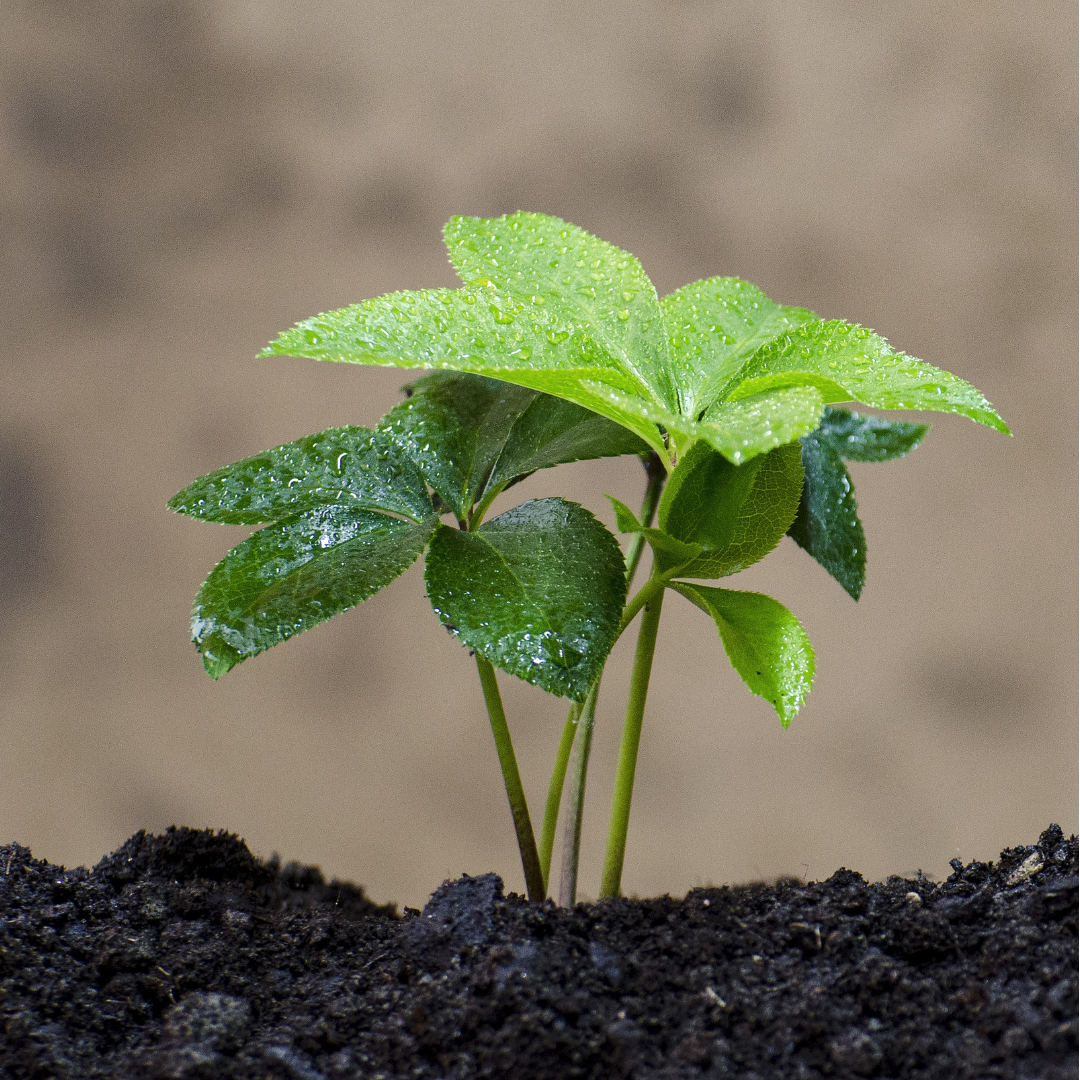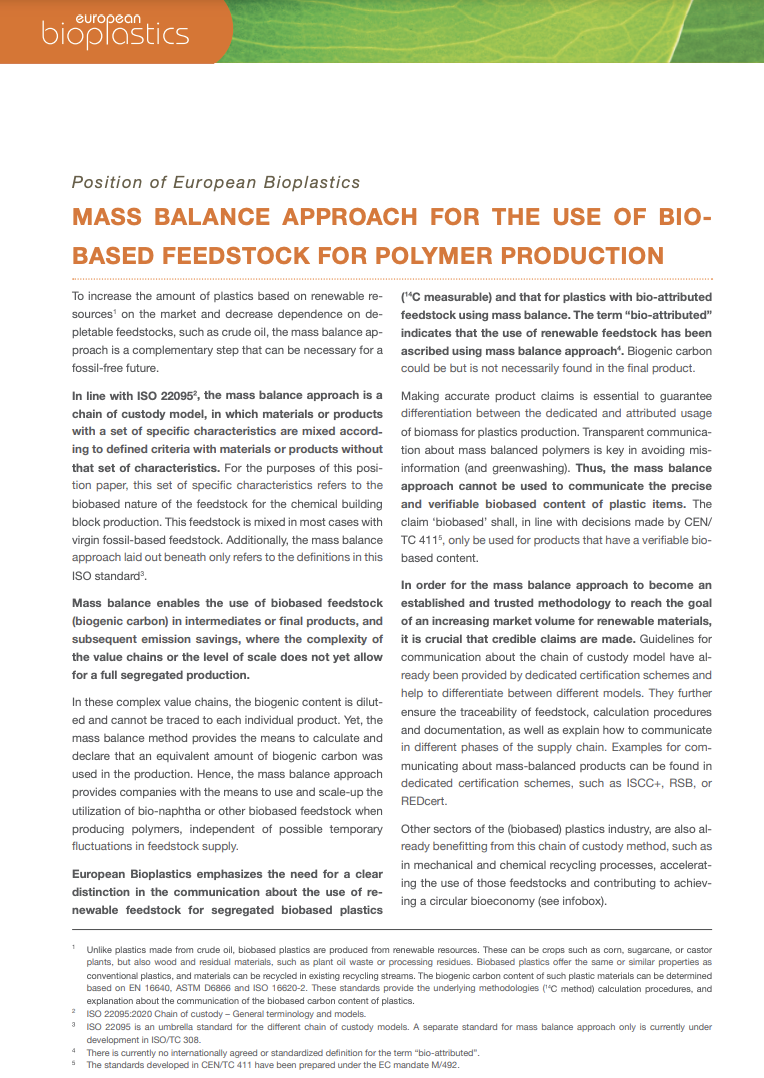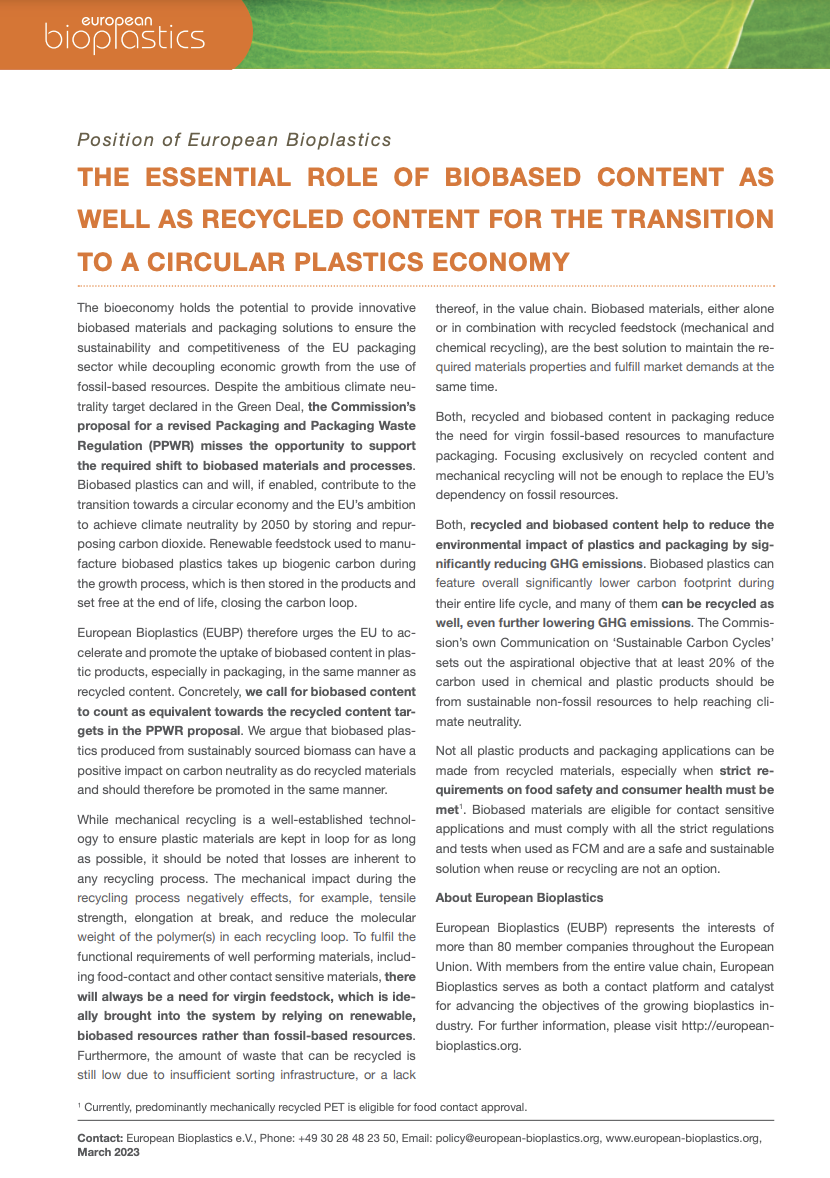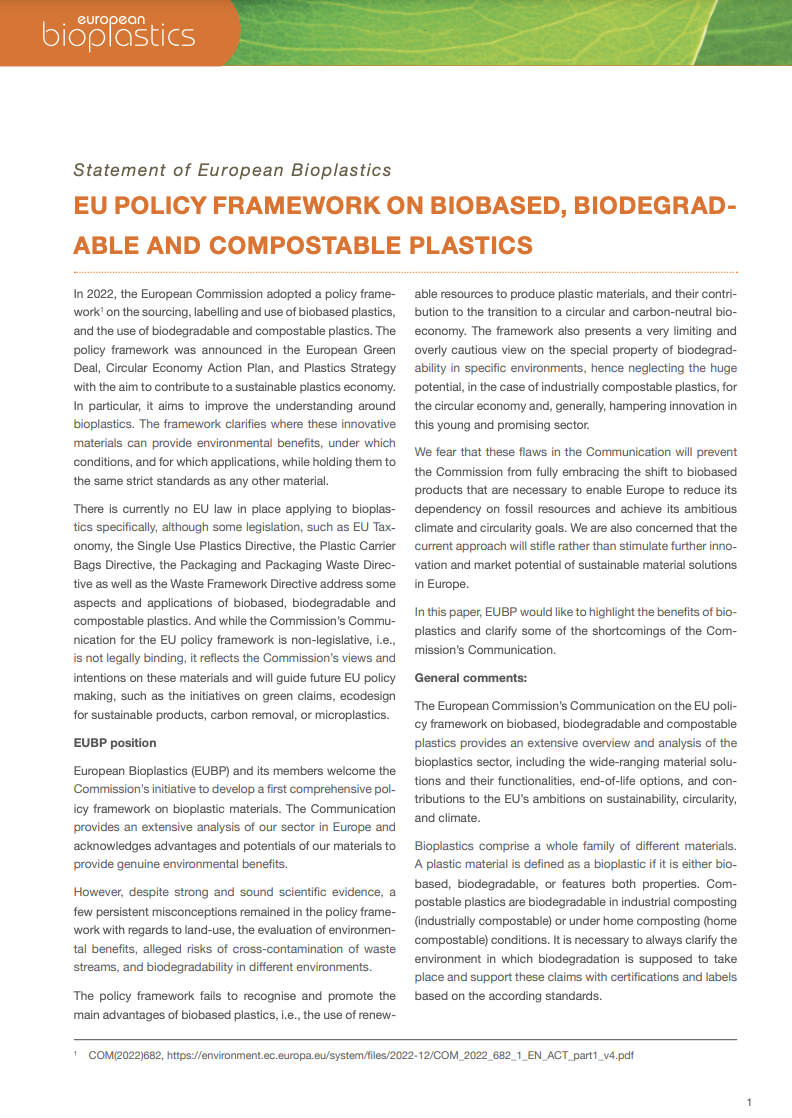Members Portrait: Celanese
Kevin Parker Business Director Celanese BioPolymers Solutions, Engineered Materials Every month, we present 5 facts about a member of European Bioplastics. This time, Kevin Parker, Business Director at Celanese BioPolymers Solutions, Engineered Materials, shares some interesting insights on his company. 5 facts about Celanese Based in Dallas, Texas, USA, with net sales [...]








